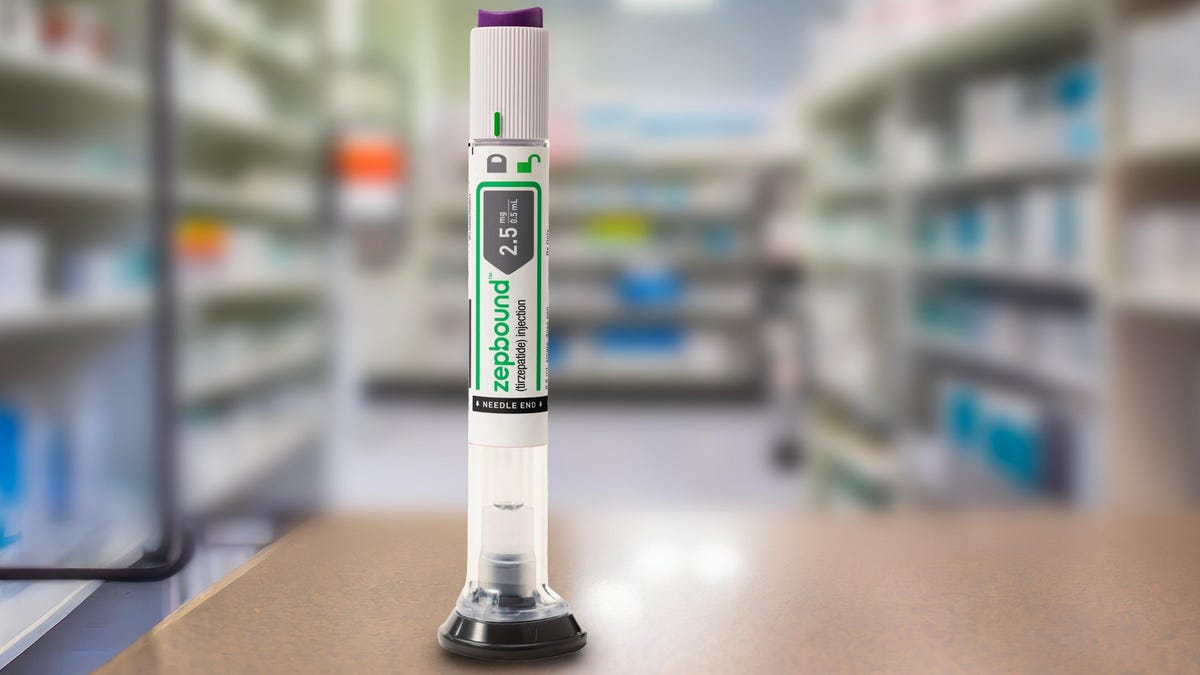
New research shows that tirzepatide, the latest FDA-approved obesity drug, really can help people lose substantial amounts of weight—but only if they continue taking it. The study found that people who stopped taking tirzepatide after 36 weeks regained much of their lost weight within a year, while those who continued to take it lost even more, about 25% of their original weight on average.
Tirzepatide was developed by Eli Lilly and was first approved in 2022 by the Food and Drug Administration to help manage type 2 diabetes, under the brand name Mounjaro; in November this year, it was further approved for obesity, under the name Zepbound. It’s the second drug in a new era of obesity medications to receive FDA approval, following the debut of Novo Nordisk’s Wegovy (semaglutide) in 2021.
Advertisement
Both tirzepatide and semaglutide work by mimicking and effectively boosting the activity of hormones key to regulating our metabolism and hunger. But semaglutide only activates the hormone GLP-1, while tirzepatide boosts GLP-1 and the hormone GIP. The drug’s dual action seems to explain its higher potency in terms of weight loss. In randomized, controlled clinical trials, people taking Wegovy have lost on average 15% of their baseline body weight over a year’s time, while those on Zepbound have lost over 20%. These results are well above the typical effectiveness seen with diet and exercise alone or with past weight loss drugs, including older GLP-1 medications. And both drugs so far appear to be generally safe and tolerated.
Advertisement
The new study, published Monday in the journal JAMA, is an extension of the clinical research funded by Eli Lilly that led to Zepbound’s approval, called the SURMOUNT-4 trial. It involved 670 people who were overweight or obese but had no diabetes at the start of the study. Everyone in the trial took tirzepatide for 36 weeks; then, people were randomly assigned to keep taking it or to switch to placebo for the next 52 weeks (this portion was also designed to be double-blinded, so neither volunteers nor doctors were told which group people belonged to).
Advertisement
Before the switch, people experienced an average 20.9% weight loss. Afterwards, those who stayed on tirzepatide lost a further 5.5% of their weight, while those on placebo regained 14%. Overall, from the start to the end of the trial, the placebo group experienced 9.9% weight loss on average, while the treatment group experienced 25.3% weight loss.
“In participants with obesity or overweight, withdrawing tirzepatide led to substantial regain of lost weight, whereas continued treatment maintained and augmented initial weight reduction,” the authors wrote.
Advertisement
The results are not surprising. Similar studies of semaglutide have found the same rebound effect once people were taken off the drug. And obesity experts have said that many people are likely to need long-term, possibly life-long treatment with these drugs to maintain their weight loss, much like other medications taken for chronic conditions. This isn’t a phenomenon limited to obesity drugs: sustained weight loss with diet and exercise alone is thought to require major, often difficult, and ongoing lifestyle changes, which helps explain why so few achieve it over the long term.
But these findings might complicate the potential benefits offered by these newer medications, at least indirectly. Both Wegovy and Zepbound are expensive without health coverage (over $1,000 a month), and private insurers have been reluctant to cover them due to their cost, while public payers like Medicare are explicitly not allowed to do so under current law. Insurance providers that initially covered these drugs also appear to have gotten more restrictive over time, while patients have already reported losing coverage and subsequently regaining weight.
Advertisement
More abstractly, there is the worry that lifelong treatment with these drugs could cause future complications that otherwise wouldn’t have appeared, though any potential harms would have to be evaluated against their known and later discovered benefits. Several studies have found that these drugs can reduce the risk of heart and kidney problems in people already vulnerable to them, for instance, and they may even help treat conditions like alcohol use disorder and binge eating.
Services Marketplace – Listings, Bookings & Reviews